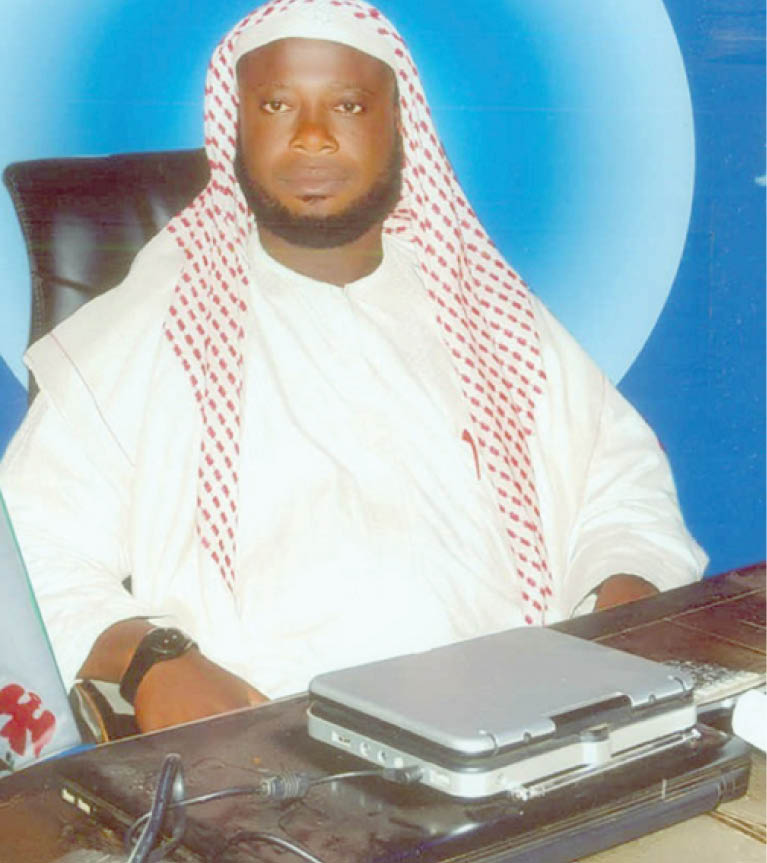Not surprisingly, our learned and erudite brother, Imam Murtadha Muhammad Gusau dedicated his sermon of this week to the concept of leadership. In a week in which we are expected to elect our national leaders, such a guide is indeed necessary. Below, are excerpts from the long and very educational sermon he delivered yesterday. – A.U Yusuf
By Imam Murtadha Gusau
Effective Islamic leaders are models of what they preach and demonstrate integrity in how they behave. There is consistency between their values, their vision, their standard and their behaviour. For many groups, effective leaders are especially able to represent a sense of hope and encouragement for people. They also inspire trust and confidence in the people around them. For example, when Umar Ibn Al Khattab was appointed as a Khalifah (Muslim Leader), he addressed the people, saying:
“Now that I am in charge of your affairs, be sure that roughness has been increased. My severity will show on the unjust and the enemies of the Muslims. But for those who are peaceful, religious, and with good intentions, I am softer on them than they would be with each other. I will not allow anyone to be unfair or to encroach upon somebody else. But those who do, I would put their face on the ground, and put my foot on their chest until they accept what is right. With all this severity I am ready to lower my head to the poor people and to the contented. You can find in me the following characteristics which I promise to maintain:
Firstly, I will never touch any money from the tax we collect, or from alms money. Secondly, nothing of state money will be spent except in the right way. Moreover, I am going to increase what is assigned to you and to defend the country. I also promise not to lend you to destructive wars, and not to leave soldiers for long period on the front lines. When you go on an expedition, I promise to take responsibility for your families until you come back. Slaves of Allah, watch Allah in every action. Help me in governing you by being righteous; and help me against myself by giving me the right advice and by stopping me from committing any thing. Having accepted what I wanted to say, I ask Allah for forgiveness for me and you.”
Self-confidence is seen in Umar’s speech which reflects his ambition and strength.
In this speech Umar clarified his policies, stating that severity will be used against the unjust and against aggressive people, while kindness will be shown to the kind and the obedient. Money, on the other hand, will be spent where it is appropriate, and soldiers will not be kept away from their families, and their families will be looked after, the country will be defended and people consulted in decision-making. History shows that Umar’s words were not mere promise, they were prove in action. There is another point in Umar’s leadership that relates to social change, namely his being kind, generous, merciful and caring.
Umar’s strong personality, his enthusiasm in applying Islam and his unfailing sense of justice, have all contributed to his unmatched success in holding the Muslim Arabs together, expanding Islam, establishing the required financial supervision and the judiciary, and building urban centers in Iraq and Egypt. So, the effectiveness of leadership depends on the following:
- Personality and character of the leader.
- Quality of the workers.
- Quality and atmosphere of the people.
The importance of the personality and characteristics of a leader is that: Leader is the symbol of the organisation and represents its nature and quality. Leader is the center of authority. And he is the driving force for the people.
Other Spiritual, Practical and Technical Qualities are:
- Taqwah, deep spirituality with excellent conduct and character are the special characteristics of a leader from the Islamic point of view. This is to be done through a constant struggle to improve:
- Close relation with Allah the Almighty.
- Love of the Prophet (Peace be upon him), love of the Sahabah (Prophet’s companions) and love of the Ulamah (Sincere Islamic scholars).
- Concern and fear of the accountability in the Day of judgment (Akhirah).
- Knowledge and practice of Islam, administrative experience, and wisdom (hikmah) of leadership. He must deeply have understanding of the religion and its application in the changing environment. Establishing Islam is the true objective of his life. He must be an example for Iman (faith), Ilm (knowledge), and Amal (action). He must have true love and priority for his mission and the Jama’ah.
- A leader must demonstrate his dedication and commitment to the organisational mission, goals and objectives by hard work and self-sacrifice. He must be honest, trustworthy, and someone with a history of selfless service.
- Competence. He should have the critical skills of leadership, i.e., observation, analysis, coaching, recognising the potentials, delegation and feedback.
- Decision-making ability after appropriate consultation and then the ability to implement that decision.
- A successful leader should be flexible in his attitude with Hikmah (wisdom) depending upon the situation but he should be firm in his decisions and zeal to move towards their true objectives.
- Strategic leaders must have the potential to understand their own moods and emotions, as well as their impact on others. They must be friendly and social.
- Effective leaders are proficient at delegation. They are well aware of the fact that delegation will avoid overloading of responsibilities on the leaders. They also must recognise the fact that authorising the subordinates to make decisions will motivate them a lot.
- A strategic leader should have the ability to speak, write and use modern techniques of communication. Moreover, he must have good physical health.
- A strategic leader should be willing to take risks. Routine work however well done never make a great leader. Good leaders always charter the unknown path. They must accept and seek new challenges.
I conclude my today’s sermon by answering for the question, how to create a leader? Turning other people into leaders is a vital part of a current leaders job, what can we do to achieve this? Simple steps to turn people into leaders are as follows:
First, we have to raise with people the possibility of their becoming leaders. This we can do in a variety of ways. We can ask them for help. We can praise their leadership qualities; we can create roles and ask them to fill them. We can talk about the need for leadership. And anything that encourages people to think of themselves as having a leadership role will be helpful.
I also conclude by answering the question, what about those who are not born leaders but have responsibilities? We can say to them they should try to acquire the required qualities of leadership. We don’t ask for position, yet it’s not allowed to escape from the responsibility once it is thrust upon you. We know that public position is not attractive, but full of responsibilities. We should have firm faith in Almighty Allah. He is the one who gave us this responsibility and He will help us to fulfil it, by His special grace.
I pray to Allah to give us taufiq to choose our leader by keeping in view the attributes pointed out by Allah and His Messenger (Peace be upon him).
Oh Allah! Do not give leadership over us to someone who doesn’t fear you and doesn’t have mercy upon us. Ameen.
This Friday sermon was delivered on Friday, February 15, 2019, in Okene, Kogi State.

 Join Daily Trust WhatsApp Community For Quick Access To News and Happenings Around You.
Join Daily Trust WhatsApp Community For Quick Access To News and Happenings Around You.


